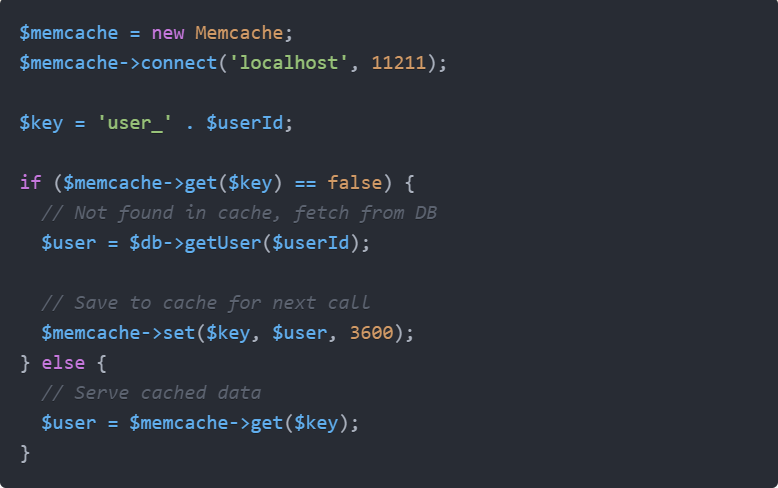
[ad_1]
The “Allowed Memory Size Exhausted” deadly error is without doubt one of the most typical points builders face in PHP. This error happens when a script requires extra reminiscence than what’s allotted to it. This complete information will focus on varied strategies to forestall and repair PHP’s Allowed Memory Size Exhausted error.
Table of Contents
– Introduction
– Understanding the Allowed Memory Size Exhausted Error
– Increasing PHP Memory Limit
– Optimizing Code to Use Less Memory
– Enabling PHP Opcache
– Using More Efficient Data Structures
– Caching Query Results
– Key Takeaways
– Wrap Up
Understanding the Allowed Memory Size Exhausted Error
The Allowed Memory Size Exhausted error message usually appears like this:
This signifies that the script tried to allocate extra reminiscence than the allotted restrict. The reminiscence restrict is configurable in PHP and has a default worth of 128MB.
Some widespread the reason why this error may happen are:
- Processing giant information or binary information
- Recursive features or algorithms
- Memory leaks within the code
- Using unoptimized information constructions
- Not caching question outcomes
Therefore, as the applying logic turns into extra advanced, the reminiscence necessities go up. And if the reminiscence restrict is just not elevated accordingly, this deadly error is thrown.
How to Fix Allowed Memory Size Exhausted Error
Now, let’s focus on varied strategies to forestall and repair this error.
Increasing PHP Memory Limit
The easiest strategy to resolve the Allowed Memory Size Exhausted error is to extend the reminiscence li
mit for PHP scripts. Here are a couple of methods to extend the reminiscence restrict:
1. Increase in php.ini file
The reminiscence restrict is configured utilizing the memory_limit directive within the php.ini file. Based in your software wants, you’ll be able to improve it to a better worth, like 256MB or 512MB.
2. Increase restrict at runtime
You may also improve the reminiscence restrict dynamically at runtime utilizing the next line, as this might improve the reminiscence restrict to 512MB for that particular script:
ini_set(‘memory_limit’, ‘512M’);
3. Increase in .htaccess file
For Apache servers, you’ll be able to add this line in your .htaccess file to lift the reminiscence restrict:
php_value memory_limit 512M
4. Increase the restrict in vhost or httpd.conf
You can solely improve the worldwide restrict on sure shared hosts by enhancing the primary Apache configuration information.
So, whereas rising the reminiscence restrict is a fast repair, it might trigger the applying to hit useful resource limits once more sooner or later. So, we additionally have to optimize our software code.
Optimizing Code to Use Less Memory
Here are some sensible suggestions for writing code that makes use of much less reminiscence and manages assets effectively:
- Enable gzip compression: Enabling gzip compression for serving property would cut back the switch and reminiscence footprint. Often, JS/CSS information are loaded uncompressed, losing numerous reminiscence.
- Use caching for repeat information: Caching avoids recreating the identical information a number of instances for widespread queries. We will focus on extra particulars later.
- Release unreferenced variables/objects: Unset variables which might be not required inside features as an alternative of ready for the rubbish collector.
- Limit variable scope: Declare variables with the smallest attainable scope they’re wanted as an alternative of all the time within the international scope.
- Avoid reminiscence leaks: Carefully handle DB connections, file handles, and so forth, and shut them when not wanted.
Allowed Memory Size Exhausted – How to Optimize Memory
There are additionally some non-trivial strategies for reminiscence optimization, like…
Enabling PHP Opcache
PHP Opcache improves efficiency by storing precompiled bytecodes in reminiscence. This avoids compiling PHP code on each request, decreasing CPU utilization and saving reminiscence.
Enabling Opcache is easy. We simply want so as to add the beneath configuration to our php.ini file:

This would cache bytecode in reminiscence and course of PHP scripts a lot quicker, decreasing reminiscence calls for.
Using More Efficient Data Structures
PHP gives each easy and complicated information constructions and lessons to handle information.
For instance, a Linked List occupies extra reminiscence in comparison with an Array for a similar variety of parts. Moreover, a hashMap gives environment friendly key-value entry in comparison with a multidimensional array.
So, whereas working with giant datasets, selecting the optimum information construction ensures higher reminiscence utilization.
Caching Query Results
Database queries are likely to eat numerous reminiscence whereas processing the ResultSets returned. Running the identical queries repeatedly multiplies the reminiscence utilization.
Caching responses from gradual DB queries in-memory utilizing Memcache, Redis, and so forth, is extremely advisable. This saves huge processing overhead on recurring learn queries.
Here is a straightforward Memcached caching instance:
We are totally avoiding an costly database name for subsequent hits if the person information was cached from earlier calls. Such caching mechanisms assist decrease reminiscence consumption whereas dashing up functions.
Major Points Discussed
Here are the important thing strategies that may assist resolve or forestall Allowed Memory Size Exhausted errors:
- Increase PHP memory_limit primarily based on software wants
- Enable Opcache for quicker script execution
- Optimize code by caching reusable information
- Release variables and shut assets when not wanted
- Use environment friendly information constructions whereas dealing with massive information
- Enable output caching and gzip compression
Learning to optimize reminiscence utilization and fine-tuning limits is a vital talent for constructing sturdy functions.
Wrap Up
The Allowed Memory Size Exhausted error is sort of widespread in PHP functions coping with massive datasets or advanced logic. This deadly error can crash our functions, denying service. Carefully benchmarking and planning useful resource utilization, upgrading infrastructure, making use of finest practices round caching, stopping leaks, and so forth., are key to avoiding hitting useful resource limits.
By mastering these reminiscence optimization strategies, we will construct smooth-running functions able to managing heavy workloads even with giant quantities of knowledge.
[ad_2]
